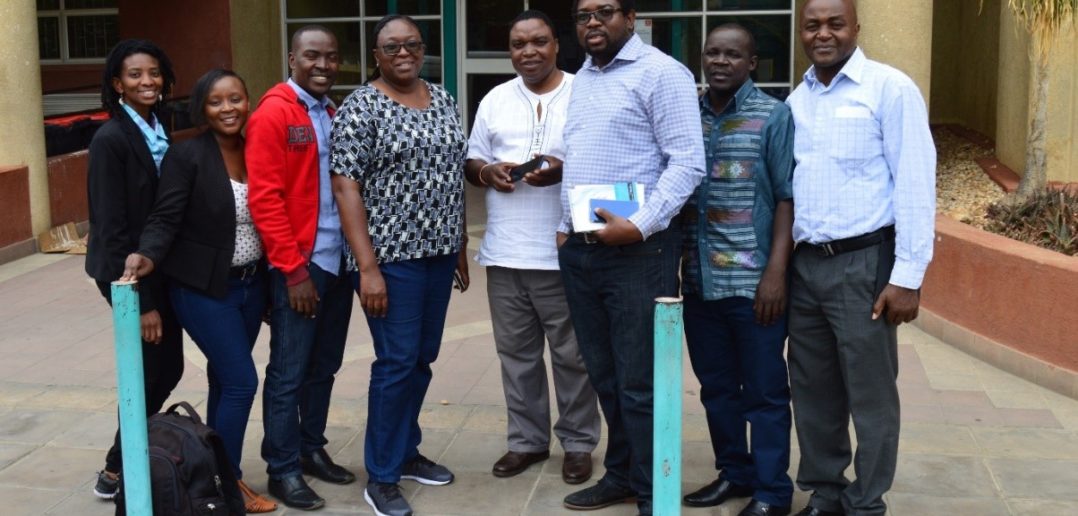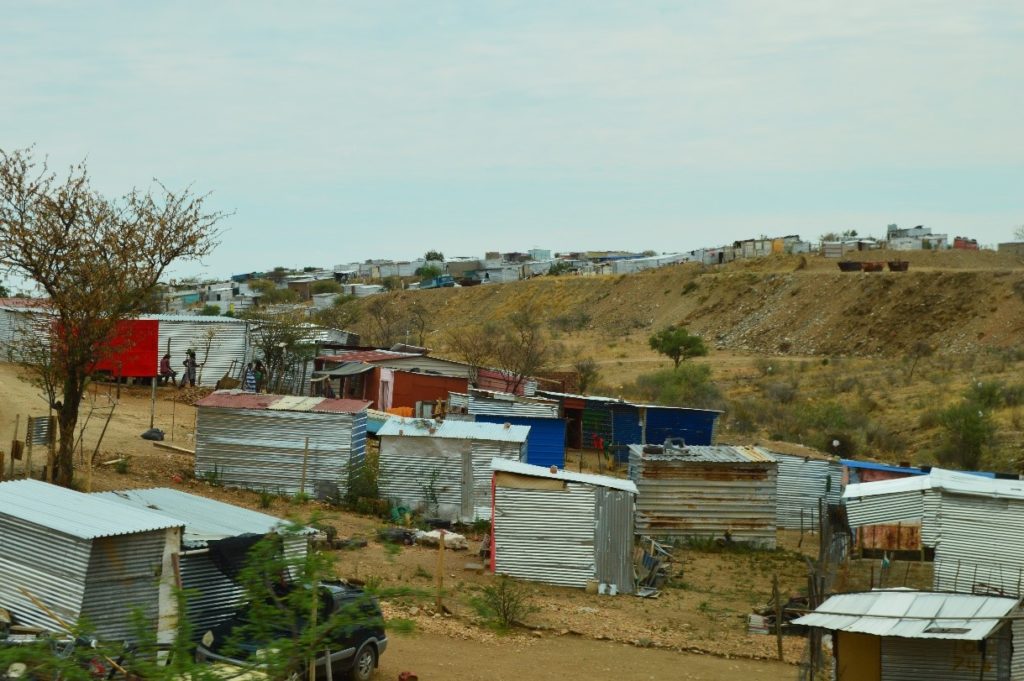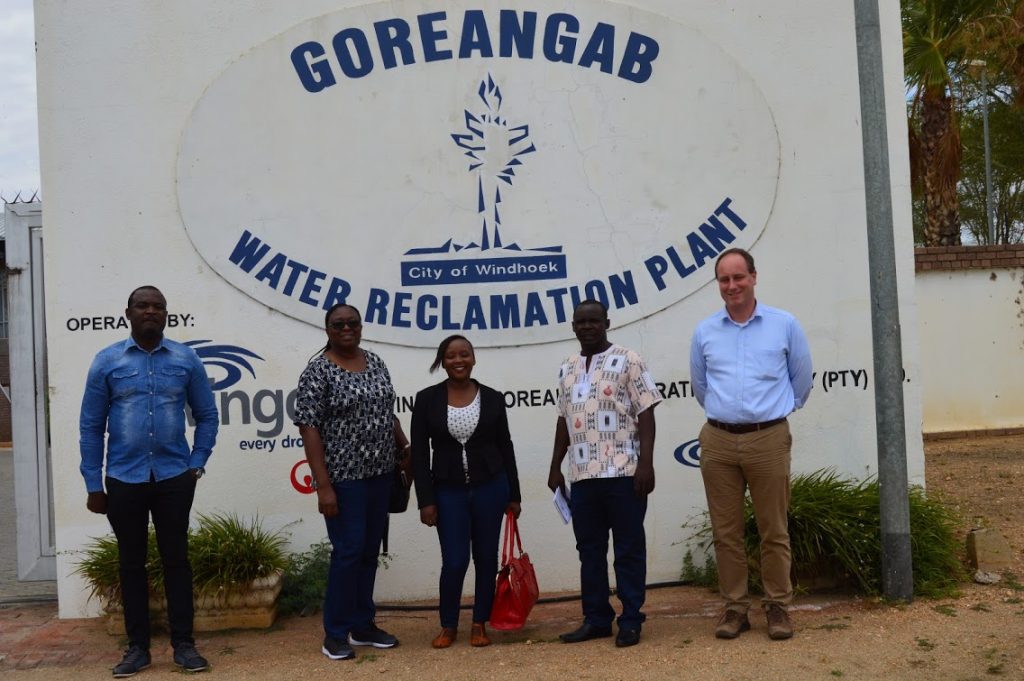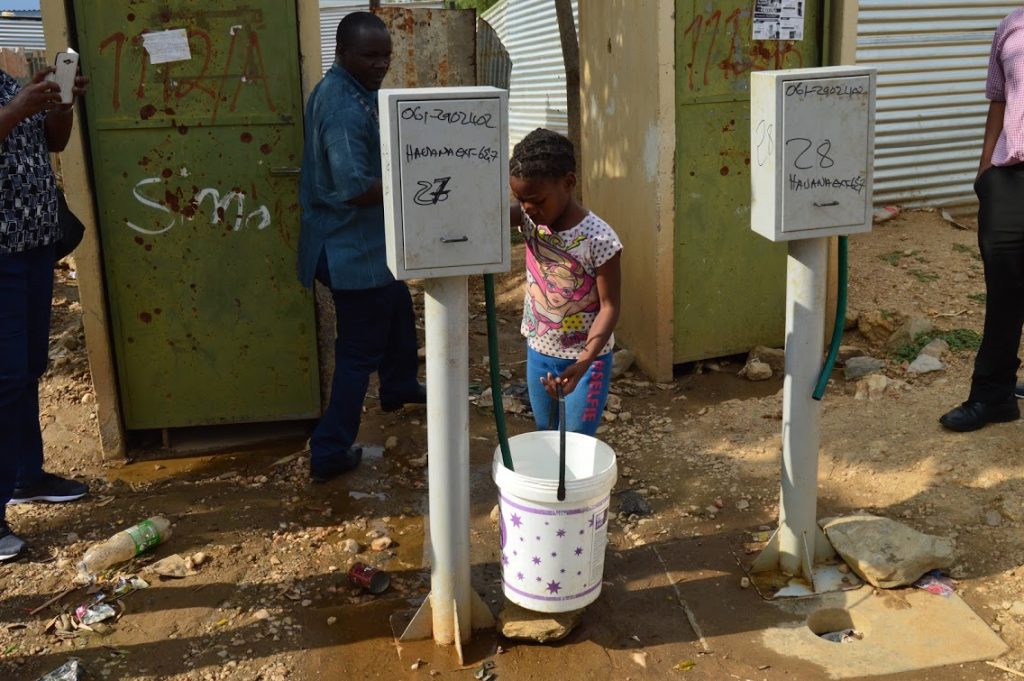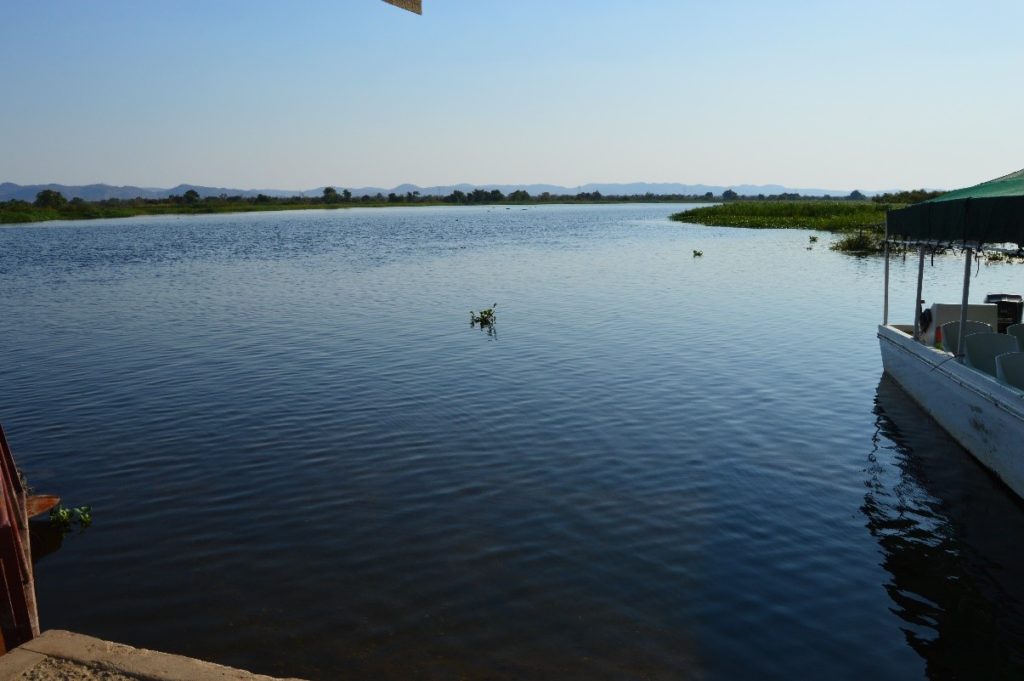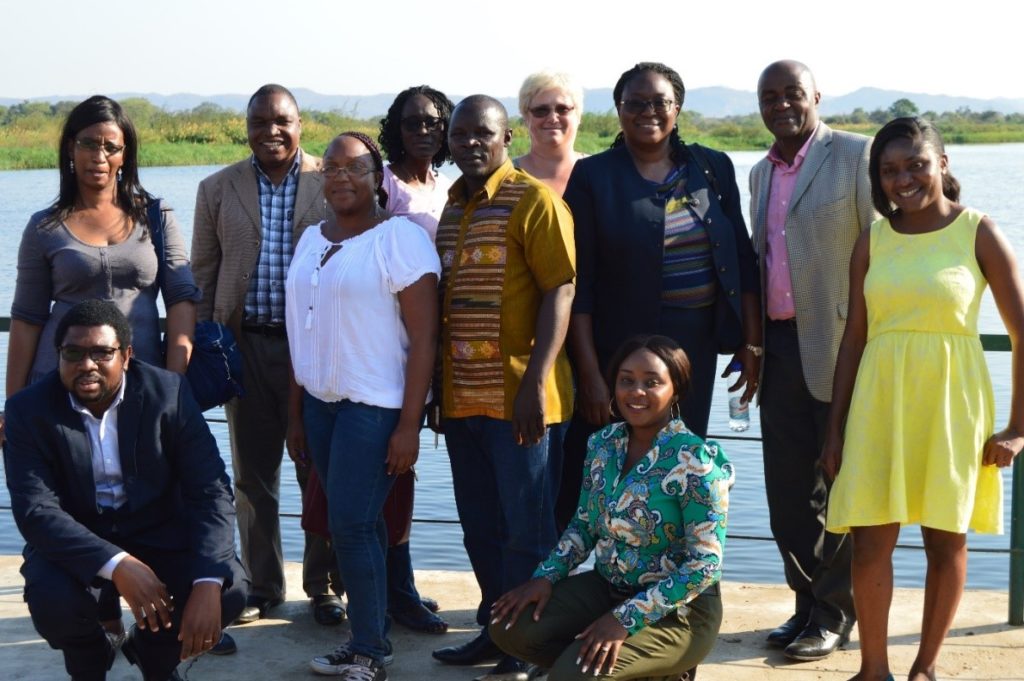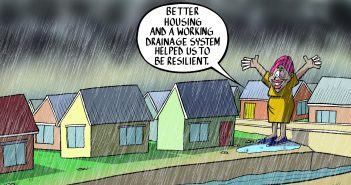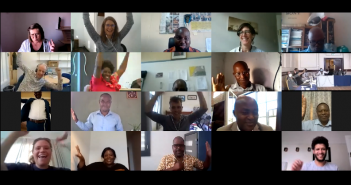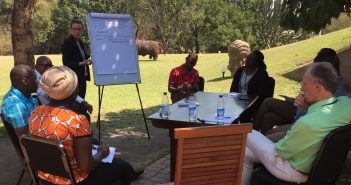The cities of Lusaka and Windhoek have recently completed the activities of the Windhoek-Lusaka Learning Exchange Programme, funded by the FRACTAL’s Small Opportunity Grant. The Windhoek team (four City of Windhoek and two University of Namibia representatives) visited Lusaka from 16-18th October 2017, while the Lusaka team (two Lusaka City Council and three University of Zambia representatives) was in Windhoek from 1-3rd November 2017. Both cities are participating in the FRACTAL Project and have identified water security as one of the key risks of climate change. The report from the visits is available here.
by Brenda Mwalukanga, Lusaka Embedded Researcher
The touring of an informal settlement in Windhoek made me think, that they are walking down the pathway that Lusaka has already taken. The population of Windhoek is on average equivalent to one settlement in Lusaka. That was something that struck me. Another thing that struck me was that families of more than five people were living in iron corrugated housing, exposed to both the heat and the cold. While the project focus is really on the resilience of cities in the water and energy sector which can sometimes only be viewed in terms of numbers and projections, the social aspect of it hits sooner that the long term projected effects of climate change.
During our stay in Windhoek, we were taken on a tour at the New Goreangab Water reclamation plant, as well as had the chance to see a couple of dry river beds. Despite the fact that all the machinery and the entire treatment process was overwhelming, the most interesting part was the fact that Namibia has been reclaiming water for the past 50 years and always treats it to a higher quality standards, compared to when treating surface and/or rain water. Also interesting to note was that other places have tried water reclamation but never managed to do it for long periods. Another thing that wowed me was that the World Health Organization has only recently established the guidelines for water reclamation. Looks like other FRACTAL cities and African cities in general need to look up to Windhoek for inspiration.
by Kornelia Iipinge, Windhoek Embedded Researcher
The Windhoek team visited the Kafue River on the outskirts of Lusaka and it was wonderful to see the flowing river, as Windhoek has ephemeral rivers (only flows after the rains). Getting to hear about uncontrolled drillings of boreholes by Lusaka residents made me sad. In Windhoek, water is so precious that it is being treated and artificially pumped into the aquifers. It is also illegal to drill a borehole without first obtaining a permit from the Department of Water Affairs under the Ministry of Agriculture, Water and Forestry.
After seeing the Lilayi Shaft 5 borehole, I wondered if the illegal settlers surrounding the borehole really understood the importance of the aquifer to Lusaka. The aquifer is prone to potential pollutants from domestic sewage as households have drilled boreholes and put up toilets for themselves. I was also struck by the fact that the Kalikiliki informal settlement was built from permanent structures of bricks, it is heartbreaking imaging demolishing such homes. It was also interesting to find out that solid waste management is a headache for the Lusaka City Council and this solid waste later contributes to the blockage of drainages making this area highly prone to flooding after rains. The Lusaka City Council would implement awareness campaigns and put up bins in town, walking paths and all public places so that people have places to put trash and are not tempted to throw it everywhere, must the bins should be emptied regularly.
We therefore conclude that the two cities have common areas of interest and issues are dealt with differently, but some solutions can be replicated or retrofitted. The learning exchange made it clear that Lusaka City Council needs to implement more measures in order to protect the groundwater and surface water resources in order to ensure sustainable access in the future. The City of Windhoek has to share their experiences with Lusaka City Council on the Solid waste management and water management strategies. Cities with an apparent abundance of resources need not be relaxed. Drastic measures for protection of groundwater and surface water need to be to be implemented now. The consequences of today’s inaction can be too dire in the next 50 years.

